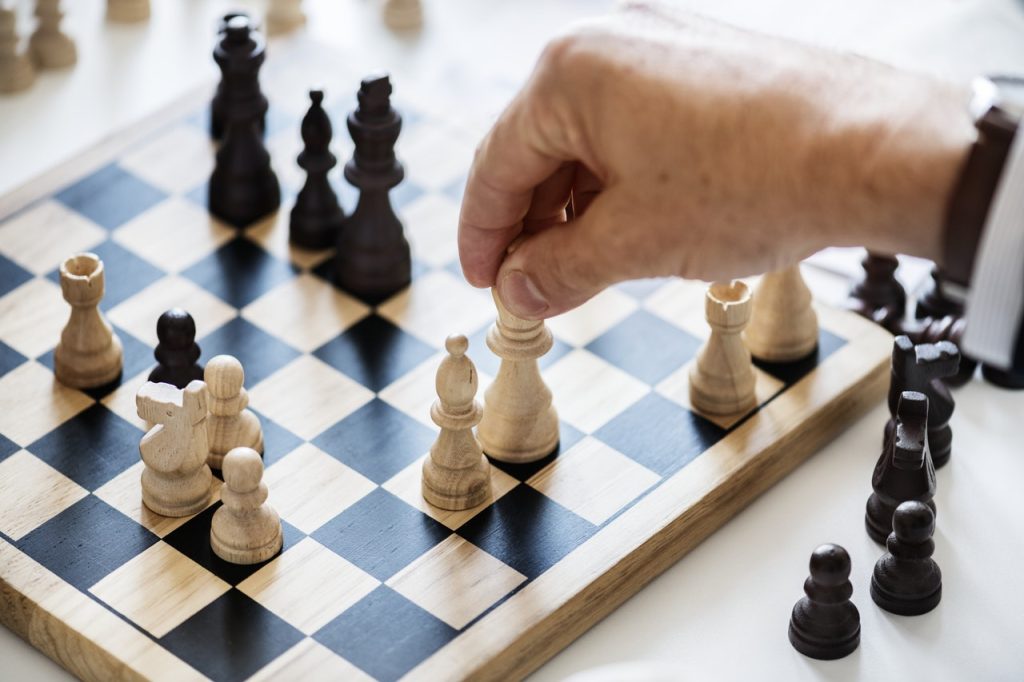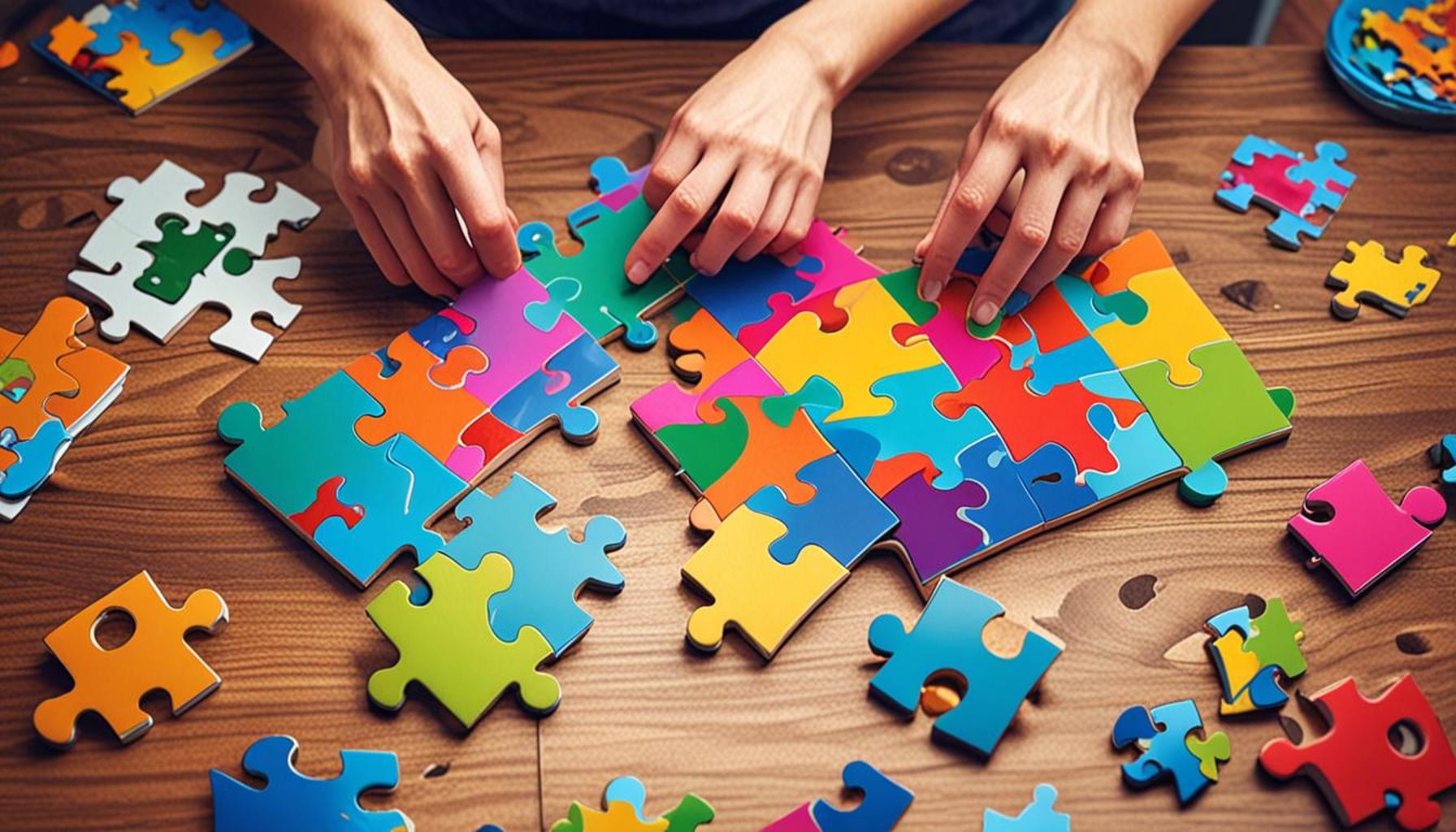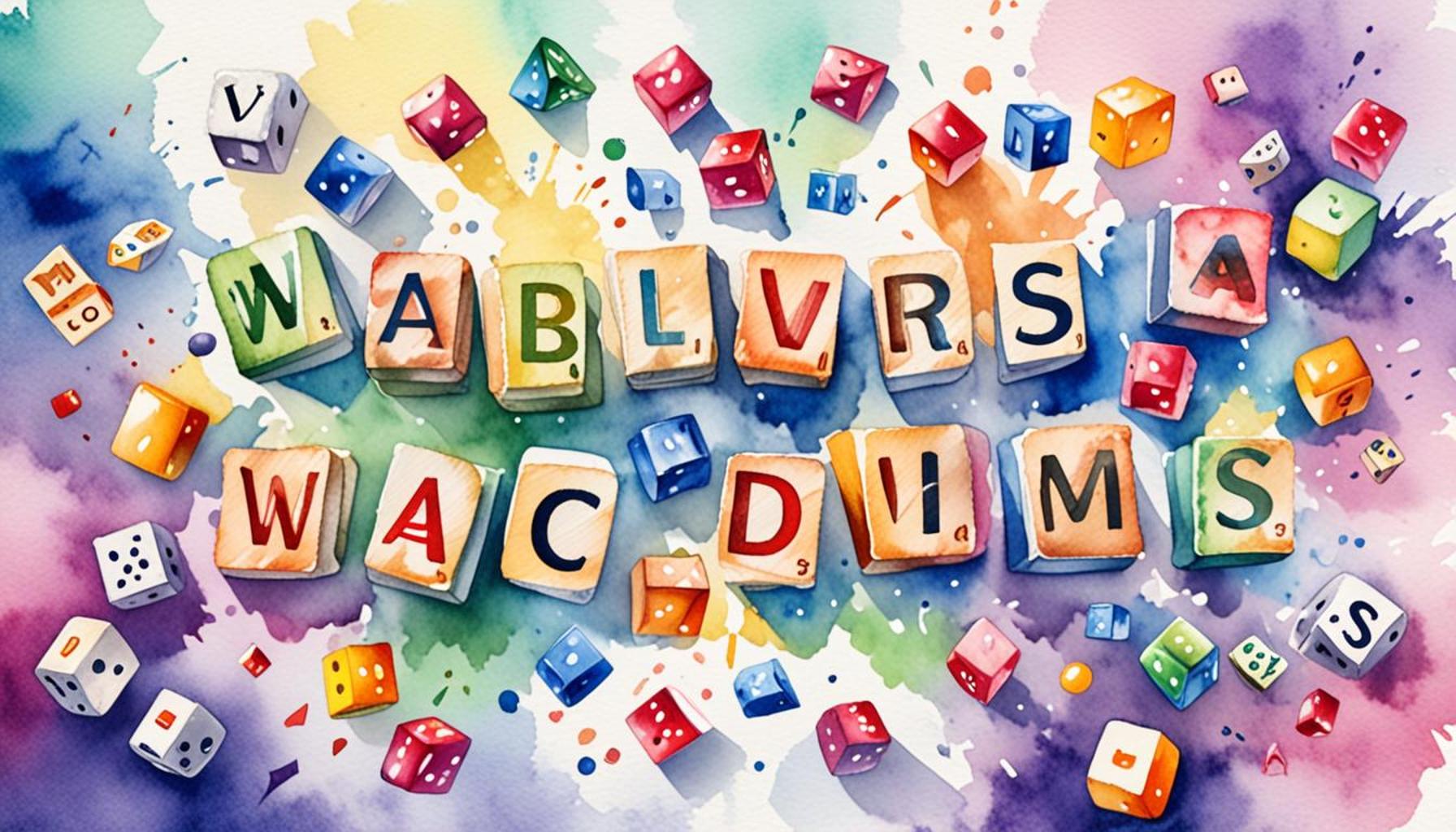The Influence of Logic Games on Decision Making: Learning to Manage Conflicts

The Influence of Logic Games on Decision Making
In an increasingly complex world, the ability to make sound decisions is crucial. Logic games serve as a powerful tool in honing this skill, particularly in the context of conflict management. They provide not just entertainment, but also valuable lessons that shape our cognitive processes.
How Logic Games Affect Decision-Making
Engaging in logic games offers several cognitive benefits that extend far beyond the gaming table. These games challenge players to think critically and creatively while navigating intricate scenarios. This is particularly relevant in a society where decision-making can have significant implications, whether in personal matters, business negotiations, or diplomatic resolutions.
- Enhanced Critical Thinking: Players learn to evaluate situations from multiple angles. For instance, a game like chess demands that participants anticipate their opponent’s moves while planning their own strategy, honing the ability to analyze complex situations critically.
- Improved Problem-Solving Skills: Challenges within the games mimic real-life dilemmas. Puzzle games such as Sudoku require logical placements and can be likened to problem-solving in workplace environments, where employees often need to find efficient solutions to pressing issues.
- Increased Patience: Players must often wait and strategize before making a move. This patience is crucial in high-stakes decision-making, where impulsive actions can lead to undesirable outcomes.
As individuals navigate conflict scenarios, the skills developed through these games come into play in significant ways:
- Data Interpretation: Evaluating all available information efficiently becomes second nature. In a business context, this skill is invaluable when analyzing market trends before launching a new product.
- Negotiation Tactics: Understanding opposing viewpoints can lead to effective resolutions. Games that involve collecting resources or forming alliances, such as Settlers of Catan, highlight the importance of negotiation and can mirror complex negotiation scenarios in real life.
- Emotional Regulation: Maintaining composure under stress is key in high-stakes situations. Logic games often put pressure on players to think quickly and make decisions that require them to manage their emotions effectively.
This intriguing intersection of logic games and decision-making not only highlights how we respond to conflict but also opens up avenues for further investigation. By practicing logic games, individuals can cultivate a mindset that appreciates the nuances of decision-making processes in everyday life. Understanding how these games influence our responses can lead to transformative approaches in personal and professional interactions. Join us as we delve deeper into how these games can reshape our conflict resolution strategies and enhance our decision-making capabilities in various aspects of our lives.
DIVE DEEPER: Click here to learn more

The Role of Logic Games in Enhancing Decision-Making Skills
Logic games contribute significantly to the development of decision-making capabilities, particularly in the realm of conflict management. By immersing players in structured challenges, these games promote a deeper understanding of strategic thinking and problem-solving. They require players to make informed choices in the face of uncertainty, mirroring real-life conflict scenarios that necessitate similar analytical skills.
Strategic Thinking and Flexibility
A key component of decision-making within conflict situations is the ability to think strategically and adaptively. Logic games such as chess and Go exemplify this by compelling players to constantly adjust their tactics based on the evolving dynamics of the game. This adaptability is crucial when navigating complex interpersonal disputes, where fixed strategies may falter as circumstances change. Players learn to:
- Assess Risks: In games, each move carries potential risks and rewards. Players develop an intuitive sense for evaluating the potential outcomes of their decisions, fostering risk assessment skills applicable to both personal and professional settings.
- Change Perspectives: Logic games often require players to view situations from their opponent’s viewpoint. This cognitive shift enhances empathy and understanding, critical ingredients for effective conflict resolution.
- Predict Outcomes: Anticipating how opponents might respond to various strategies becomes paramount. This skill can translate well into areas like negotiation, where predicting a counterpart’s actions can lead to more favorable resolutions.
Moreover, the repeated engagement in these games reinforces cognitive pathways that support decisive action under pressure. For instance, during a team negotiation in the workplace, the ability to stay calm while calculating possible outcomes can be the deciding factor in reaching an agreement.
Building Collaborative Skills
Beyond individual skill development, logic games foster collaboration and communication—two essential elements in managing conflicts. Games that incorporate teamwork, such as Pandemic or Escape Room challenges, require players to work together to overcome obstacles. This collaborative environment encourages participants to:
- Articulate Ideas Clearly: Effective communication is necessary to share strategies and perspectives during gameplay, mirroring discussions needed for conflict resolution in real-life settings.
- Encourage Diverse Opinions: Engaging with different strategies allows players to value diverse viewpoints, an ability that can diffuse tensions and lead to more effective negotiations.
- Develop Trust: Building trust among team members is essential for successful collaboration. Logic games create scenarios where players must rely on one another’s decisions, strengthening interpersonal relationships.
These dimensions of gameplay highlight how immersed involvement in logic games not only sharpens individual decision-making tactics but also enhances collaborative approaches to conflict resolution. By cultivating these essential skills through play, individuals may find themselves better equipped to tackle disputes in various aspects of their lives, whether at home, at work, or in community interactions. The insights gained can lead to more productive conversations and innovative solutions, emphasizing the transformative power of strategic thinking in decision-making.
The Role of Logic Games in Enhancing Decision-Making Skills
Logic games serve as a powerful tool in the realm of decision-making. They offer an engaging way to refine one’s analytical skills, allowing individuals to think critically and assess various outcomes based on provided scenarios. These games can simulate complex situations where players must navigate through conflicts, enhancing their ability to make sound judgments under pressure.One notable aspect of logic games is their reliance on strategy rather than chance. This element instills the importance of evaluating risks versus rewards, a vital skill in real-world conflict management. By emphasizing foresight and planning, participants learn to anticipate the consequences of their decisions. Additionally, many logic games foster collaboration and negotiation, encouraging players to interact and work through disagreements effectively.Moreover, studies have shown that regular engagement with logic games can lead to improved cognitive functions, including memory retention and problem-solving abilities. As players encounter increasingly challenging scenarios, they develop resilience and adaptability—qualities that are crucial in both personal and professional decision-making contexts. Furthermore, logic games often involve ethical dilemmas that force players to consider multiple perspectives. This facet not only broadens their understanding of varied viewpoints but also enhances their capacity for empathy, consequently leading to more constructive conflict resolution strategies in their lives.To graphically represent the advantages of integrating such games into decision-making practices, consider the following table:
| Advantage | Description |
|---|---|
| Enhanced Critical Thinking | Logic games challenge players to think critically, solving problems through structured reasoning. |
| Improved Conflict Resolution | Engagement in scenario-based games builds skills necessary for managing and resolving conflicts effectively. |
Incorporating logic games into daily routines can have impactful effects on individual decision-making capabilities. The experience gained through these intellectual challenges prompts growth and strategic thinking, which are essential in navigating both personal and professional conflicts.
DISCOVER MORE: Click here to learn how puzzles can help reduce stress
Applying Logic Games in Real-World Conflict Scenarios
The influence of logic games on decision-making extends beyond theoretical understanding and immerses individuals in practical applications that are essential for effective conflict resolution. By translating strategies developed in gameplay to real-world conflicts, players can significantly enhance their problem-solving abilities. This transfer of skill is particularly evident in various domains, including business negotiations, interpersonal relationships, and even international diplomacy.
Real-World Applications of Logic Game Strategies
In a corporate environment, decision-makers often face complex situations that require negotiation and collaboration among diverse stakeholders. Logic games teach participants how to analyze competing interests and devise strategies for mutual benefit. For example:
- Negotiation Simulation: Companies frequently engage in role-playing scenarios that mimic the structure of logic games. Employees may participate in simulated negotiations that require them to adapt to unpredictable responses from colleagues or clients, mirroring the unpredictability found in games like Diplomacy, where players must form alliances and anticipate betrayals.
- Conflict Resolution Workshops: Organizations are increasingly hosting workshops that incorporate elements of logic games to foster critical thinking and empathy among team members. These activities generate meaningful discussions about differing perspectives and encourage participants to view conflicts as opportunities for growth rather than obstacles.
The adoption of these principles enhances not just the decision-making prowess of individuals but also the collective intelligence of teams. This synergy can lead to innovative solutions that might not have surfaced through traditional problem-solving approaches.
Exploring Enhanced Emotional Intelligence
Another significant benefit of engaging with logic games is the improvement of emotional intelligence, a vital factor in managing conflict. Through gameplay, individuals can cultivate self-awareness and social awareness, two components that are crucial when negotiating and resolving disputes. Here’s how:
- Self-Regulation: Players often encounter frustration when challenged by opponents, teaching them to manage their emotions. This skill of self-regulation is essential in heated discussions or negotiations, where emotional responses can cloud judgment and escalate conflicts.
- Empathy Development: Understanding the motivations behind an opponent’s strategy in games enhances one’s ability to empathize. In real-world conflicts, this translates to better listening skills and a greater willingness to understand the other party’s perspective, often leading to more amicable outcomes.
- Effective Communication: Logic games necessitate clear communication to build strategies, which is directly translatable to real-world conflict resolution. Individuals who practice articulating their thoughts during gameplay often find it easier to express their needs and concerns in challenging situations.
Research has shown that increased emotional intelligence has a direct impact on successful conflict management. According to a study published in the Journal of Conflict Resolution, individuals with higher emotional intelligence tend to navigate disputes more efficiently, leading to quicker resolutions with lasting impact.
The Future of Logic Games in Conflict Management Training
As organizations look to future-proof their teams against conflict-related challenges, the integration of logic games into training programs appears increasingly promising. The growing recognition of the effectiveness of gamified learning experiences is paving the way for more innovative approaches in educational settings, workplaces, and even community initiatives aimed at conflict resolution.
Implementing logic games in workshops and training sessions provides a low-stakes environment where individuals can practice influential decision-making strategies without the pressure of real-life consequences. This transformative potential not only enhances skills but also builds a more collaborative culture within organizations and communities alike.
Ultimately, the influence of logic games on decision making—specifically in managing conflicts—illustrates the remarkable power of strategy, adaptability, and emotional intelligence in forging constructive relationships and finding resolution in a complex world.
DISCOVER MORE: Click here to dive deeper
Conclusion: Embracing Logic Games for Enhanced Decision Making
In an increasingly complex world, where conflicts arise in both personal and professional spheres, the influence of logic games on decision-making and conflict management cannot be overstated. By engaging with these strategic games, individuals not only refine their analytical skills but also gain invaluable tools for navigating and resolving disputes. The practical applications of logic game strategies, from corporate negotiations to community interactions, highlight a crucial shift in how we view conflicts—not as detrimental obstacles, but as opportunities for growth and collaboration.
The ability to enhance emotional intelligence through logic games further solidifies their significance in conflict management. As players develop skills in self-regulation, empathy, and communication, they become better equipped to understand diverse perspectives and foster constructive dialogues. This cultivates a culture of respect and cooperation, ultimately leading to innovative solutions and lasting resolutions.
Looking ahead, the incorporation of logic games into training and educational programs presents an exciting frontier for conflict management. By creating low-stakes environments for practice, organizations and communities can empower individuals to hone their decision-making skills without the pressures associated with real-world tensions. As this trend gains momentum, it offers the potential not just to enhance individual competencies but to reshape collective approaches to conflict, encouraging a more harmonious and productive society.
In conclusion, recognizing the transformative power of logic games in improving decision-making and conflict resolution opens new avenues for personal and professional development. As we embrace these strategic tools, we prepare ourselves to face challenges with enhanced clarity, creativity, and compassion.


